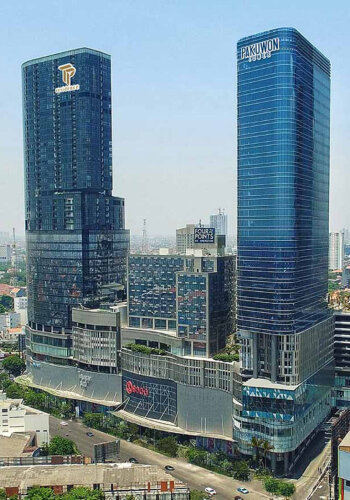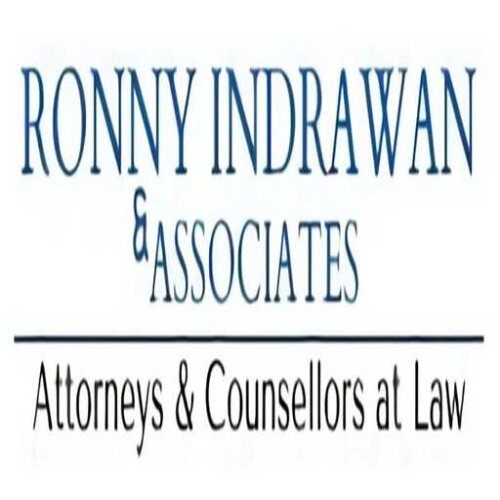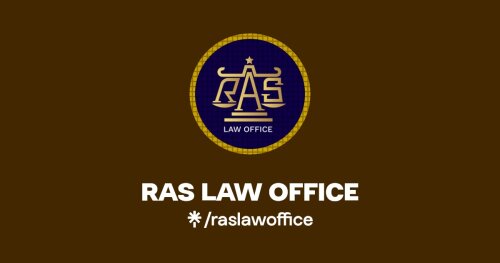Best Public-Private Partnerships (PPP) Lawyers in Surabaya
Share your needs with us, get contacted by law firms.
Free. Takes 2 min.
List of the best lawyers in Surabaya, Indonesia
About Public-Private Partnerships (PPP) Law in Surabaya, Indonesia
Public-Private Partnerships, commonly known as PPP, are collaborative arrangements between government entities and private sector companies aimed at delivering public infrastructure and services. In Surabaya, as in much of Indonesia, PPPs are used to finance, design, construct, operate, and maintain public infrastructure such as transportation systems, water supply, sanitation, education, and energy facilities. These partnerships are governed by both national and local laws designed to balance the interests of public benefit with private sector efficiency and investment.
PPP frameworks in Surabaya are becoming increasingly relevant as the city grows and modernizes. They allow the local government to access private funding, technology, and expertise, resulting in improved public services and infrastructure development. Legal clarity and robust contracts are vital to ensuring that these projects succeed and meet the needs of both public authorities and private partners.
Why You May Need a Lawyer
Engaging in a Public-Private Partnership can be a complex process that requires careful legal attention. Some common situations where legal help is essential include:
- Drafting and negotiating PPP contracts and agreements
- Understanding regulatory compliance with national and local government requirements
- Structuring project finance and risk allocation mechanisms
- Addressing land acquisition or zoning issues
- Resolving disputes or potential litigation between partners
- Ensuring environmental, labor, and safety standard compliance
- Dealing with intellectual property concerns in project delivery
- Navigating government procurement and bidding processes
- Advising on tax implications of PPP projects
- Securing permits, licenses, or other governmental approvals
An experienced lawyer can help ensure that your interests are protected, that all legal requirements are met, and that your PPP project progresses smoothly.
Local Laws Overview
PPPs in Surabaya operate under a combination of national and local regulations. The primary national regulation is Presidential Regulation No. 38 of 2015 concerning Cooperation between Government and Business Entities in the Provision of Infrastructure. Locally, the Surabaya city government may have additional bylaws and regulatory requirements, particularly relating to land use, licensing, and environmental approvals.
Key aspects of laws affecting PPPs in Surabaya include:
- Procurement Procedures - Transparent and competitive tendering processes must be followed for PPP project selection.
- Project Feasibility - Comprehensive feasibility studies are mandated before project approval to ensure economic, technical, and legal viability.
- Risk Allocation - Laws require clear allocation of risks (such as financial, construction, and operational risks) between public and private entities.
- Contractual Obligations - Contracts must outline the rights and responsibilities of each party, performance standards, and consequences for breach.
- Land Acquisition - Specific regulations must be followed for land procurement, including compensation for landowners and adherence to applicable zoning rules.
- Dispute Resolution - PPP contracts typically require the inclusion of dispute resolution mechanisms, often arbitration or mediation.
- Monitoring and Reporting - Ongoing government oversight, reporting, and monitoring of PPP projects ensure compliance and transparency.
Understanding these legal requirements is crucial to successfully launching and managing a PPP in Surabaya.
Frequently Asked Questions
What is a Public-Private Partnership (PPP) in Indonesia?
A PPP in Indonesia is a long-term cooperation between a government body and a private business entity to provide infrastructure and public services using the expertise and funding from the private sector.
Which sectors in Surabaya commonly use the PPP scheme?
Common sectors include transportation (roads, ports, public transit), water supply and sanitation, energy, waste management, hospitals, and schools.
How are PPP projects initiated in Surabaya?
PPP projects can be initiated by the government through public sector planning or proposed by private investors through unsolicited proposals, subject to review and approval by the relevant government agencies.
What are the main legal documents required for a PPP project?
Essential legal documents include the PPP contract, feasibility study, government approval, licenses, land rights documentation, and financial agreements.
What are the steps in obtaining project approval for a PPP in Surabaya?
The process usually involves submission of project proposals, feasibility studies, open tender processes, contract negotiations, and final approval from relevant local authorities.
Who are the key government authorities involved in PPPs in Surabaya?
Key authorities include the Surabaya city government, the Regional Development Planning Agency (Bappeda), and sometimes the National Public Procurement Agency (LKPP) for large-scale projects.
How are risks typically managed in PPP agreements?
Risks are allocated between the parties based on their ability to manage them, and are carefully outlined in the PPP contract to minimize disputes.
What are common challenges faced by PPP projects in Surabaya?
Challenges include regulatory complexities, land acquisition delays, financing difficulties, and coordination between different government agencies.
How is land acquisition for a PPP project handled?
Land acquisition must follow Indonesian land laws and involve compensation to affected landowners, with adherence to local zoning and environmental regulations.
What happens if a dispute arises in a PPP project?
Most PPP contracts have dispute resolution clauses, with disputes typically settled through negotiation, mediation, or arbitration rather than litigation.
Additional Resources
If you are seeking more information or need assistance related to PPPs in Surabaya, consider reaching out to the following:
- Surabaya City Government - Infrastructure and Development Office
- Regional Development Planning Agency (Bappeda) Surabaya
- National Public Procurement Agency (Lembaga Kebijakan Pengadaan Barang Jasa Pemerintah - LKPP)
- Indonesian Chamber of Commerce and Industry (KADIN) Surabaya Chapter
- Local law firms specializing in infrastructure and PPP law
- Indonesian Ministry of National Development Planning (Bappenas)
These institutions can provide guidelines, regulatory updates, and directories of qualified professionals to assist with your PPP project.
Next Steps
If you are considering participating in a Public-Private Partnership in Surabaya or facing a legal issue related to an existing PPP project, here are recommended next steps:
- Identify the scope and objectives of your PPP involvement
- Gather all relevant documents and information about the prospective project
- Contact a qualified legal professional or law firm with experience in PPP projects and Indonesian infrastructure laws
- Consult with local authorities and development agencies to understand regulatory requirements
- Request a legal review of contracts, feasibility studies, and compliance documentation before making commitments
- Prepare to engage in ongoing coordination between private partners, government agencies, and legal advisors throughout the project lifecycle
Taking these steps early can help you navigate the legal complexities of Public-Private Partnerships in Surabaya and protect your interests throughout the project.
Lawzana helps you find the best lawyers and law firms in Surabaya through a curated and pre-screened list of qualified legal professionals. Our platform offers rankings and detailed profiles of attorneys and law firms, allowing you to compare based on practice areas, including Public-Private Partnerships (PPP), experience, and client feedback.
Each profile includes a description of the firm's areas of practice, client reviews, team members and partners, year of establishment, spoken languages, office locations, contact information, social media presence, and any published articles or resources. Most firms on our platform speak English and are experienced in both local and international legal matters.
Get a quote from top-rated law firms in Surabaya, Indonesia — quickly, securely, and without unnecessary hassle.
Disclaimer:
The information provided on this page is for general informational purposes only and does not constitute legal advice. While we strive to ensure the accuracy and relevance of the content, legal information may change over time, and interpretations of the law can vary. You should always consult with a qualified legal professional for advice specific to your situation.
We disclaim all liability for actions taken or not taken based on the content of this page. If you believe any information is incorrect or outdated, please contact us, and we will review and update it where appropriate.

















